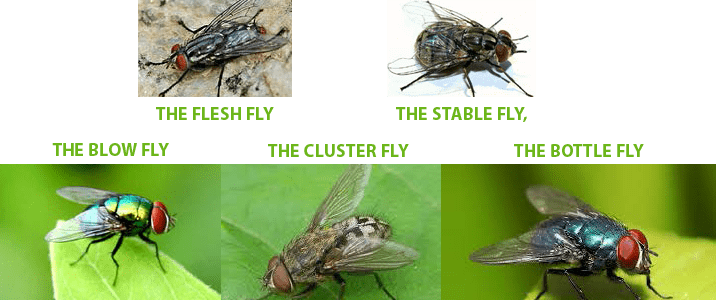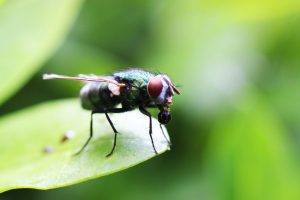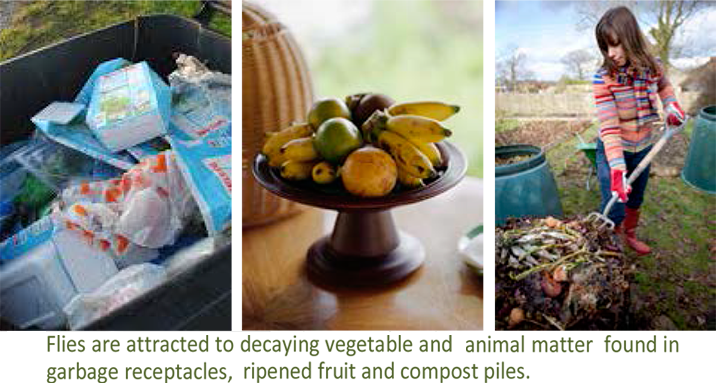Identification and Life Cycle
Filth flies (domestic) are typically found around the outside and inside of structures, and can be an extreme nuisance. Some domestic flies feed on blood, while others are scavengers and feed on decaying matter.
The Blow Fly, resembles a house fly, and is twice the size, approximately 1/2 – inch long. It is metallic blue, blue or green in color. Their life span can be 2-4 weeks, and lay up to 2,000 eggs in its lifetime.
The Bottle Fly, is approximately 1/2–inches long with large red eyes. Its head and thorax is gray and abdomen is a shiny metallic blue. The adults can live up to 4 weeks, laying eggs in clusters of 200 at a time.
The Cluster Fly, is about the same size as a house fly; 1/4 – inch in size. It is gray with black markings, and yellow hairs on its thorax. Their life span is 4-6 weeks. They lay eggs in the soil in summer months.
The Flesh Fly, is approximately 1/2- inch long. Adults have a gray and black checkerboard pattern on abdomen with a life span of 2-4 weeks. The female does not lay eggs, but retains them in her body, and can birth up to 300 larvae. Their life span is 2-4 weeks.
The Stable Fly, is about the same size as a house fly, a 1/4 – inch in size. It is gray in color with dark stripes on their back and a checkerboard pattern on its abdomen. Their life span is approximately 3 weeks, and the female can lay up to 1,000 eggs in a lifetime.




Comments are closed.